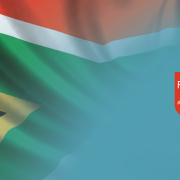|
Getting your Trinity Audio player ready...
|
By Petrus Marais and Karam Singh
First published on City Press
Business success – and survival – relies largely on developing a strategy that takes into account various scenarios, considers mitigating factors, makes certain assumptions, spotlights threats and charts a course for the future.
Three years ago very few C-suite executives factored in a global pandemic such as Covid-19, and by April 2020 most five-year strategies had to be tossed. Those who survived revealed that more than being strategic, they needed to be resilient.
FTI Consulting’s Resilience Barometer SA report, published this October. set out to chart the areas making the top of the board meeting agenda for South African executives, and provide fact-based and timely insights to enable clear-headed decisions in a volatile and changing environment.
Globally, the report said, the most common threat listed by executives was the potential emergence of new, vaccine-resistant Covid-19 variants. In South Africa that concern was listed fourth. Our top concerns are unemployment and corruption.
The prevalence of corruption ranked slightly below that of rising unemployment. Corruption is seen as presenting a significant challenge for the future growth of South African businesses, with 55% of executives believing that it will increase from its already unacceptably high levels.
This perception is magnified by the pandemic-enforced disruptions to business models, increased digitisation and remote working environments.
These situations of rapid change have facilitated the spread of corruption by fraudsters. Not surprisingly, 83% of respondents would like to see greater transparency and availability of ultimate beneficial ownership information to help in the fight against corrupt activity which hamstrings businesses.
However, despite the widespread negative economic impacts of the Covid-19 pandemic, the current political climate provides a unique opportunity to reinvigorate the country’s fight against corruption.
It is encouraging to hear the robust anti-corruption statements from senior leadership in government. These are needed to protect state resources and implement good governance procedures regarding public finances, including the promise of criminal prosecution for perpetrators.
The Cabinet has proposed several anti-corruption measures, including requiring officials to step down from public office if charged.
And while police and prosecution authorities remain under-resourced, we are starting to see consideration for non-trial resolution of criminal matters, such as plea bargains and deferred prosecution agreements to speed up the imposition of penalties and sanctions.
The challenge here is that law reform must take place to provide prosecution authorities with more latitude to negotiate deferred prosecution agreements.
Compliance with global standards is required
In October, the Financial Action Task Force (FATF) – an intergovernmental organisation that develops policies to combat money laundering, terrorist financing and other nefarious activities – along with Transparency International, made recommendations to the National Treasury dealing with beneficial ownership, which they consider as posing a high-risk situation that enables criminal activity. South Africa became a member of the FATF in 2003.
Beneficial ownership transparency must be seen as part of a broader set of measures to reform procurement corruption, where South Africa lags behind in creating a transparent, open and corruption-proof system.
Fronting is pervasive and very few of those either implicated or found guilty of procurement fraud are debarred from doing continued business with government. From fronting to money laundering, beneficial ownership transparency initiatives must be enforced.
Several reports, including from the Auditor-General, reveal millions of dollars lost in procurement irregularities yearly and there are claims (unsubstantiated) that roughly 20% of the South African GDP is lost to corruption.
The Reserve Bank’s National Risk Assessment focuses on 20% to 25% of government procurement being lost annually, equivalent to about $6-billion (R95.7-billion).
The FATF recommendations are recognised as the global anti-money laundering and counter-terrorist financing standard. The FATF strongly recommends that South Africa pursue money laundering and terrorist financing in line with its risk profile, including state capture.
South Africa’s mutual evaluation report stated that while some money laundering cases – including corruption and state capture activities – have been identified, there remains significant weaknesses in the country’s anti-money laundering systems, in combating the financing of terrorism and in counter-proliferation financing.
South Africa is expected to take remedial steps within 18 months to address the deficiencies identified in the report.
The FATF has stated: “South African authorities have achieved some good results confiscating criminal proceeds. However, the [country has] struggled to recover assets from ‘state capture’ and proceeds that moved to other countries.”
These findings will further erode confidence in South Africa’s ability to combat money laundering and financial crime. Combating corruption at every level is vital, not only to guarantee the basic human rights enshrined in our Constitution, but to attract the investment needed to fuel future economic growth.
Marais is head of South Africa Practice at FTI Consulting SA, and Singh is incoming executive director of Corruption Watch







